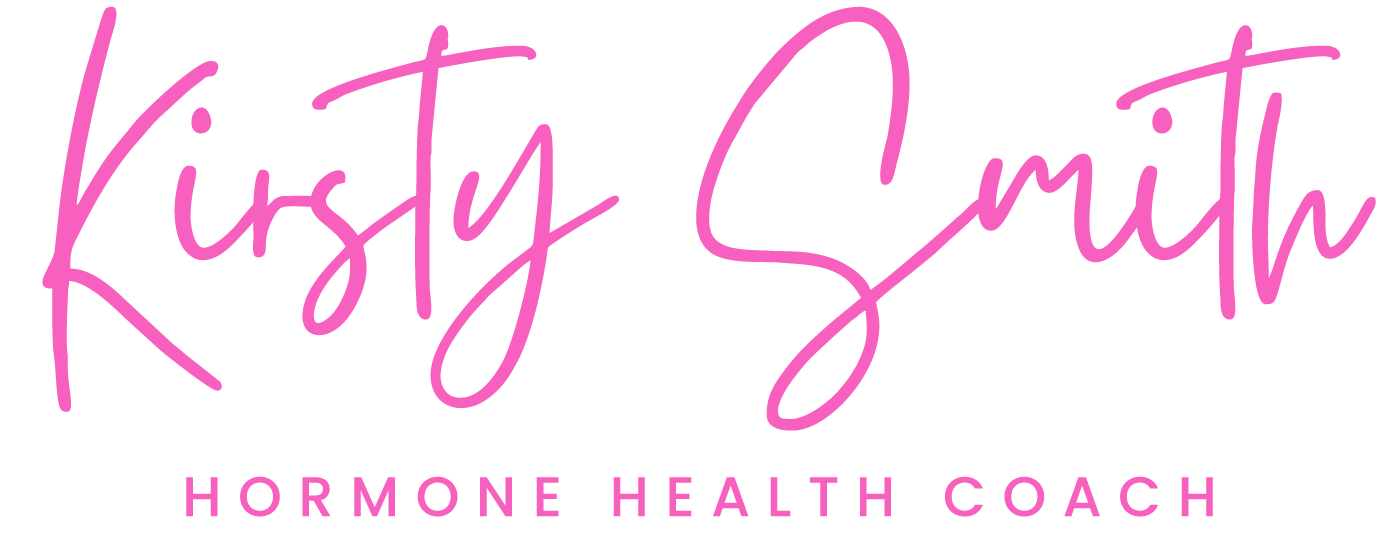How to identify if your hormones are imbalanced
Have you ever asked yourself - “are my hormones imbalanced?” or maybe you’ve wondered “are my period symptoms normal?” if so keep reading or watch in the video below…
The first step in understanding if you have an imbalance is to understand your menstrual cycle.
Image showing what an average menstrual cycle looks like.I talk you through what a healthy menstrual cycle looks like in the video above but to summarise:
The optimal range is 25 - 35. So if your cycle is less than 25 days or 36+ this is an indicator that something is off balance.
Your period comes regularly and follows a healthy ovulation.
The duration of the first phase of your cycle (the follicular phase) can vary considerably from person to person and will vary over the course of your lifetime.
The 2nd phase of your cycle (the luteal phase), in a balanced, healthy cycle should be much more predictable. This is due to the fact that the corpus luteum (the follicle that held the egg and that is trying to get pregant (whether you want to or not) has a finite lifespan of 12-16 days. So if it’s not fertilised within that time the period will arrive. So if your periods and unpredictable and you’re not sure if you’re ovulating, this could be a sign of a hormonal imbalance.
**So when you ovulate dictates when/ or if you will bleed 🩸.
Healthy ovulation produces lots of great hormones like progesterone.
How do you know if you’re ovulating?
Healthy ovulation symptoms include sticky and stretchy cervical fluid, an increase in basal body temperature (BBT) after ovulation, increased energy, mood and sexual desire.
So we get the juicy 💦 ovulation symptoms and then if we do not fall pregnant we have a period.
So if you are experiencing changes with your period you have to look at ovulation. You can’t understand the full picture without it.
Ovulating regularly is important for your menstrual health but also your overall overall health and wellbeing because it provides cognitive support, supports bone health, mood, skin and so much more…
SO LET’S TALK ABOUT WHAT SYMPTOMS YOU SHOULD EXPECT ON YOUR PERIOD
Feeling more lethargic - wanting more sleep/ naps/ rest days - this is normal as your get up and go hormones have dropped. It’s completely okay to want to slow down.
Lower mood/ more introverted - but nothing drastic that causes arguments with loved ones etc.
Minimal pain/ aches - depends on our pain threshold but it isn’t anything that requires pain-killers or stops you in your tracks.
Minimal water retention - ideally none.
SYMPTOMS YOU SHOULD NOT ACCEPT AS NORMAL AND THAT INDICATE AN IMBALANCE
Periods that arrive <21 days
Periods that arrive > 37 days
No periods for months
Bleeding for 7+ days
Bleeding for <2 days
Brown blood
Heavy bleeding - multiple pad/ tampon changes
Clots
Debilitating pain that stops you in your tracks
Pain radiating outside of the lower abdomen (down the back/ legs)
Diarrhoea/ intense period poops
Painful & uncomfy bloating/ water retention
Feeling completely drained of energy
Severe mood swings
Angry skin
Headaches/ migraines
How many of those have you accepted as normal for far too long?
And it’s not your fault - your Dr tells you not to worry, that these are common symptoms and your friends share similar experiences…so you just start to accept it as your fate.
Common doesn’t 🟰 normal
#5 easy things you can do today to support hormone balance
Focus on eating macro-balanced meals, especially protein at every meal. Nope cereal for breakie and soup for lunch isn’t helping your hormones.
Daily walks - get out in daylight for a 20-minute walk. I talk about the positive benefits of daily walks for your hormone health here.
Stop skipping meals, especially breakfast! Living off 1200 calories is barely enough for a child and definitely not enough for a grown-ass woman. Skipping meals puts your body in a stress response which does nothing for hormonal imbalance. If you’ve ever wondered if intermittent fasting is beneficial for women, the answer is NO.
Ditch the synthetic fragrances in your home. Quick win = start with your plug in air fresheners and cleaners.
Love to snack? Make sure to put some clothes on your carbs to help manage the blood sugar spike.
Download my FREE ebook and easily get started with each of these tips. The ebook includes recipe ideas, hormone-loving product swaps, and soooo much more.

